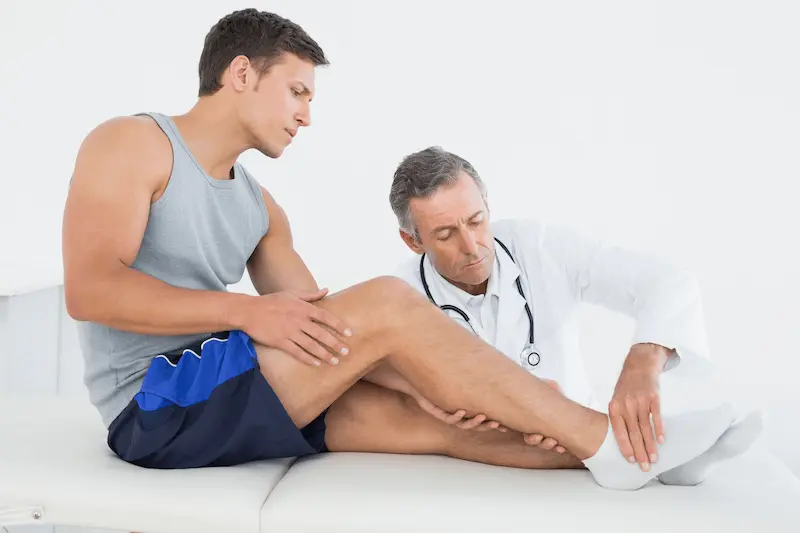
Why did my Knee Replacement Fail?
Author
Dr Naveen Kumar LV
MBBS, MS Orth, FRCS Orth (Eng), MCh Hip & Knee (UK)
MSc Orth (UK), Dip SICOT (Italy), FEBOT (Portugal),
MRCGP (UK), Dip FIFA SM (Switzerland), (FSEM (UK))
What is Total Knee Replacement?
The Knee replacement surgery is one of the common surgeries performed worldwide now. It is performed to help relieve the pain and stiffness one used to experience due to arthritis of the knee. It is performed with a cut on the front of the knee. The ends of the bones are cut to the shape to remove the arthritic part of the joint. Using cement, the implants are fixed to provide a smooth joint surface.
What is the typical timeline to recover?
Total Knee Replacement gives you a stable knee which can take weight on directly even on the day 1. The only reason why you feel the pain and stiffness is due to the surgery wound. The soft tissues and skin need time to heal. Your bone and joint will already be ready to take the load on! You can expect to walk without a walker by 2 weeks post surgery. You can expect to walk comfortably outdoors by 4 weeks post surgery. You can expect to climb stairs comfortably by 6 weeks.
What are the common complications of knee replacement?
Fortunately, serious complications such as infection, clots, implant failure, loosening of implants are rare. However, we often get to hear that the knee replacement was not successful in someone whom the patient knows. Poor success in patient parameters are persistence of pain, stiffness, poor mobility and difficulty in sitting and standing up. The common reason for this is delayed rehabilitation, immobilization post surgery for a prolonged period of time. If a patient is bed bound for the first few weeks post surgery, it becomes extremely hard to mobilize them later. It often occurs due to poor communication regarding the rehabilitation and physiotherapy by the Doctor, over-protective family or non-availability of quality physiotherapists in remote places.
How can I prevent this issue post my TKR surgery?
Have a thorough discussion with your Surgeon prior to the surgery about the rehabilitation post surgery. Make sure that you have the physiotherapy help available at home in the first few weeks and in the nearby center for further few weeks. Discuss with your Surgeon and physiotherapists about what are the realistic goals and tentative time frames in which you can expect to achieve.
How can I help improve my outcomes post Surgery?
What happens if I am late and have ended up with stiffness of the knee post surgery?
If the joint has already become very stiff and the range of movement is not improving with the physiotherapy as well, then you may need manipulation under anesthesia (MUA) to regain the movement. This is a small procedure under anesthesia where the surgeon bends the knee through the full range of movement within a span of 2 to 3 minutes. There will be no cuts made. Post this procedure, you will still need to continue physiotherapy and exercises to sustain the benefits of mobility achieved by manipulation under anasthesia.
Last but not the least.
Remember that physiotherapy and rehabilitation are done by you! Physiotherapist is there to help, not do it for you!
